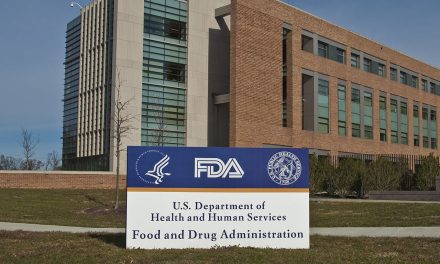On February 20, 2008 the Supreme Court ruled on Riegel v. Medtronic. The patient Charles Riegel and his wife brought the suit after Riegel was injured by a Medtronic balloon catheter during an angioplasty procedure in 1996. The ruling is a clear loss for the tort bar wishing to bring suit for negligent or inadequately labeled PMA devices. More background from the SCOTUS BLOG:
The Riegels’ claims alleged that the catheter had been negligently designed, labeled, and manufactured, that Medtronic was strictly liable for Riegel’s injuries, and that the company had breached express and implied warranties.
Medtronic moved for summary judgment, arguing (inter alia) that the Riegels’ claims were preempted because the Food and Drug Administration (FDA) had approved the catheter pursuant to its premarket approval (PMA) process. The PMA process is codified in the 1976 Medical Device Amendments (MDA), 21 U.S.C. § 360c et seq., to the Federal Food, Drug, and Cosmetic Act (FDCA), 21 U.S.C. § 301 et seq., which substantially broadened the FDA’s authority to regulate medical devices. The specific provision at issue, 21 U.S.C. § 360k(a), provides, with respect to medical devices, that no state may establish any “requirement” that is “different from” or “in addition to” any federal requirement, or “which relates to safety or effectiveness of the device” included in a requirement applicable under the MDA[.]
The district court granted summary judgment in part, holding that all of the Riegels’ claims were preempted except for those based on negligent manufacturing and express warranty. Following discovery, Medtronic moved for, and the district court granted, summary judgment on the remaining claims, which are not at issue here.
The Riegels appealed the preemption ruling to the Second Circuit. In a 2-1 decision, that court affirmed, holding both that the PMA process imposes device-specific preemptive “requirements” within the meaning of § 360k(a) and that the Riegels’ design and labeling claims are sufficiently “device-specific” to warrant preemption. Importantly, the court found that these claims “do not rest on the premise that the particular catheter” used during Mr. Riegel’s surgery was not in compliance with the standards approved by the FDA PMA, but rather that the “liability-creating premise of all of these claims is that the Evergreen Balloon Catheter itself, in its present PMA-approved form, is in some way defective.” Thus, the court observed, manufacturers of PMA devices would be in an untenable position if claims such as the Riegels’ were not preempted, as they would have to comply with federal regulations but could still be liable even when in full compliance.
This ruling only applies to products that go through the premarket approval process. Products claiming substantial equivalence (i.e., 510(k)) do not qualify for the preemption of tort claims at the state level. The rationale here was that if a medical device vendor has to prove the safety and effectiveness of their device by complying with § 360k(a) and thus meeting the federal threshold, the vendor should not be liable at the state level under a different burden of proof.
More from a different post on SCOTUS BLOG on the lone dissenter in the ruling:
Justice Ginsburg dissented from what she viewed as a “constriction of state authority” that Congress never intended. Discussing at length the history of the Medical Device Amendments (MDA) and their purpose to “protect consumer safety,” she found both the failure of the MDA to establish a federal compensatory remedy and the lack of a similar preemption provision in federal pharmaceutical regulation to indicate that Congress did not intend to bar state tort claims for medical devices. Finally, Justice Ginsburg pointed out that failing to find preemption here would not render the FDA PMA process irrelevant - it would still be relevant to the question of possible conflict preemption as well as other affirmative defenses.
Apparently (and I'm no lawyer) if a manufacturing defect results from not following approved processes, or the product has changed from the what was approved in the PMA, a plaintiff still has recourse to file against the vendor. Apparently Riegel's situation was one in which he underwent a risky procedure that resulted in complications. There was no finding of defect against Medtronic.
Needless to say, plaintiff lawyers are disappointed.
I think everyone agrees that there is no suggestion in the legislative history of § 360k(a) that injury victims would lose their only vehicle for recovering compensation for injuries caused by negligent or inadequately labeled PMA devices. Say what you want about the value of legislative history but not a single member articulated the view that this statute would preempt state tort law claims. In fact, a House Report of the bill notes with apparent approval that California already had adopted a regulatory scheme for medical devices which completely contradicts the Court's holding. The legislative history of the MDA is so in conflict with the Court's holding that it might as well have made a new rule that legislative history is never of probative value.
Note the claim above that the catheter was negligently or inadequately labeled rather than defective or poorly designed. Over at Drug and Device Law, their view is that this represents a major ruling:
The 7-1 Riegel decision definitively demolishes a lot of the arguments we've been seeing for years (if not decades) from plaintiffs opposing preemption. In particular:
The PMA process creates "specific counterpart regulations" within the meaning of Medtronic v. Lohr, since the PMA process is concerned precisely with safety and effectiveness. "[P]remarket approval is specific to individual devices. And it is in no sense an exemption from federal safety review—it is federal safety review." Op. at 9 (emphasis original). Unlike Lohr PMA approval "is focused on safety, not equivalence." Id.
Manufacturers are not free simply to change the attributes of their devices after approval. "[T]he FDA requires a device that has received premarket approval to be made with almost no deviations from the specifications in its approval application." Op. at 10.
They also present a great discussion on the breadth of potential legal ramifications from the ruling - read the whole thing.
The Wall Street Journal presents a great summary from the manufacturer perspective.
The Supreme Court today brought good news to medical device makers, and bad news to patients who want to sue them. The Supremes ruled that federal law bars lawsuits “challenging the safety or effectiveness of a medical device,” as long as the device is marketed in a form that received premarket approval from the FDA.
The decision (online here) provides “a very potent defense against product liability lawsuits,” Mark Herrmann, a defense lawyer who writes the Drug and Device Law Blog, told us.
Next up, drug. The court recently agreed to hear a case involving Wyeth, "The plaintiff argues the injected version of Wyeth’s nausea drug Phenergan was unsafe, even when used as described in its official labeling."
And finally, Drug and Device Law wraps things up with a reality check:
The medical device industry, or at least the most innovative part of it, received major relief from product liability litigation yesterday in Riegel v. Medtronic (now online at 2008 WL 440744). As long as our clients with PMA-approved devices comply with federal law, they’re not going to be subject to much in the way of product liability. Not only that, as we pointed out only two weeks ago, so-called “parallel” (or “violation”) claims have their own conceptual problems, given the exclusive grant of enforcement authority to the FDA.
That’s not what we’re talking about right now, though. We’re stone, cold sober.
We won. What does that mean? At bottom, it means that, just as Riegel gives some of our clients the opportunity for a more litigation-free existence, that increased freedom carries with it a correspondingly increased responsibility.
Plaintiffs lawyers like to say (at least when they’re not piously denying the “regulatory effect” of tort law in briefs opposing preemption) that product liability litigation serves as an incentive to make safer products.
We defense lawyers retort that product liability litigation is horribly ineffective (given the influence of so many non-merits issues), inefficient (plaintiffs’ lawyers take 33% or more of most recoveries, and that’s not even counting defense costs), and downright counterproductive (deterring innovation, and punishing manufacturers for doing the right thing when they discover problems) compared to governmental regulation as a means of ensuring product safety.
Well, now we’re going to find out who’s really right.
Above is an angioplasty balloon catheter from Medtronic.
UPDATE: Law firm Blank Rome sent out their Health Law Update on this case today (you can subscribe here). They noted that while the ruling does make it harder to sue medical device vendors, vendors are not off the hook completely:
However, not all state damage suits are precluded under the premarket approval process. Suits contending that the device was manufactured in violation of FDA specifications are still permitted, as are suits brought under state laws that parallel FDA regulations, as opposed to supplementing them. Manufacturers of medical devices subject to the FDA’s rigorous premarket approval process can now take comfort in knowing that successful navigation of that process could yield the added benefit of immunity from personal injury suits. In keeping the federal regulatory scheme intact, the Court’s ruling affords manufacturers peace of mind while curtailing their susceptibility to damage suits.



C C’s Mom
Okay…so the FDA says we cannot sue device manufacturers when their products fail and cause harm. Wonder what their answer would be if asked “who foots the medical bills when it happens?†I am the parent of a 12 year old whose heart device failed back in October. It failed within three years of its original implantation and caused him to have to undergo an additional surgery to replace the failed device. HUGE medical bills, and the device manufacturer offers NO assistance with the bills. By the way, we discovered it had failed within one week of the FDA recall. Is it right for our medical insurance company to have to pay for the SAME surgery a second time because of an FDA recall/device failure? There is such a thing as Maximum Lifetime Coverage with insurance companies, and now, with the second surgery, our son has made a huge dent in his lifetime coverage. Good God…he’s only 12!!!! With the heart defect he has, HE NEEDS MEDICAL COVERAGE. Medical insurance keeps going up for all of us because of big device manufacturers whose products fail and they refuse to anti-up…just keep posting record profits. Shame on them, and shame on the Supreme Court for increasing our insurance costs as a result of the Reigel v. Medtronic ruling. I am not talking about personal gain or trying to sue in order to pocket big bucks…I am talking about paying a kid’s medical bills when his heart device failed within its warranty period. What ever happened to the idea of making the “cost causer†pay? Any thoughts or suggestions?